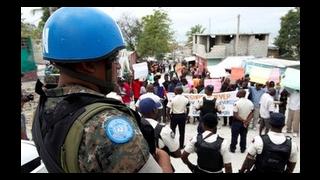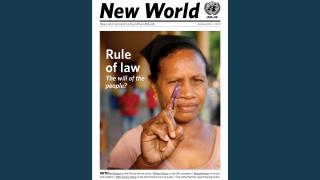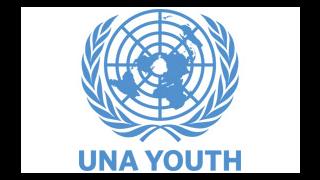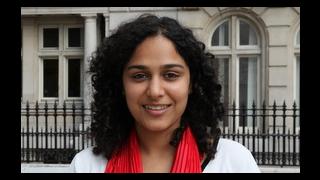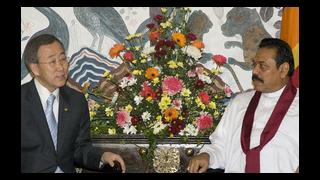UNA Harpenden branch’s annual UN Day service includes a reading of the preamble to the UN charter which begins with those well-known words – “We the peoples of the United Nations, determined to save succeeding generations from the scourge of war”. I suspect that this grand aim is shared by many of UNA-UK’s members. Sadly the conflicts that continue to erupt in many parts of the world – such as in Sudan, Libya and of course Syria – suggest that this is still a long way from being achieved. The preamble goes on to express the determination “to establish conditions under which justice and respect for the obligations arising from treaties and other sources of international law can be maintained”. Given that the proliferation of arms is one of the main causes of the escalation of conflicts, the recent Arms Trade Treaty (ATT) as agreed at the UN in April, offers the opportunity to pursue both these objectives.
As a member of the Control Arms Coalition which campaigned intensively for an effective treaty, UNA-UK was represented at the final ATT conference by Ben Donaldson, Communications & Campaigns Officer. Although compromises were made, the Coalition supported the final agreed text. When Iran, North Korea and Syria blocked an agreed consensus at the conference, a vital clause in the conference’s mandate ensured the vote was transferred to the UN General Assembly where it achieved an overwhelming show of support (154 ‘yes’ votes, three ‘no’ votes and 23 abstentions). For the treaty to come into force, it needs to be ratified by at least 50 states, and we were pleased to see the UK sign the treaty on the first day that it was open for signature. In April, the UNAUK Policy Conference supported UNA Harpenden’s proposal which called on the UK government to implement a strong interpretation of the treaty with a robust regulatory framework, thereby setting a good example to other states. UNA-UK members have an important role to play in calling for this, particularly as the UK plans to ratify the treaty by the end of the year.
Whilst developments in international law attempt to reduce the danger of armed conflict, the UN also needs to be more effective in promoting peaceful reconciliation between warring parties. The UN Peacebuilding Commission, established at the World Summit in 2005, works with numerous UN bodies and NGOs involved in conflict prevention and reconciliation activities. The World Summit also adopted the Responsibility to Protect (R2P) principle, which sets out a state’s duty to protect its civilian population, and the international community’s responsibility to intervene should it be unwilling or unable to do so. The concept also calls on the international community to assist states in carrying out this obligation. UNA-UK’s R2P programme is working to raise awareness and galvanise support for the concept, both amongst its wider membership and within the UK government. UNA Harpenden branch’s R2P topic submission to the Policy Conference urged the UN and its member states to put more effort and resources into this important area of conflict prevention.
Let us hope that by these means the UN and its supporters will move closer to the goal of saving succeeding generations from the scourge of war.
Trevor Evans is chair of UNA Harpenden branch and UNA Eastern Region. Trevor presented on a number of topics for discussion at UNA-UK’s 2013 Policy Conference.







